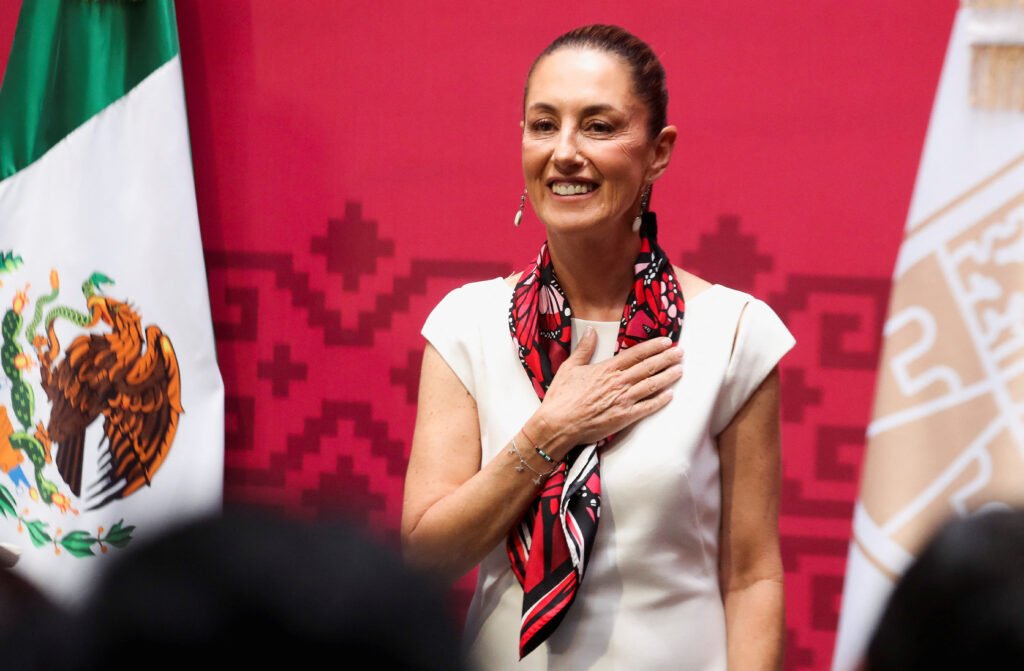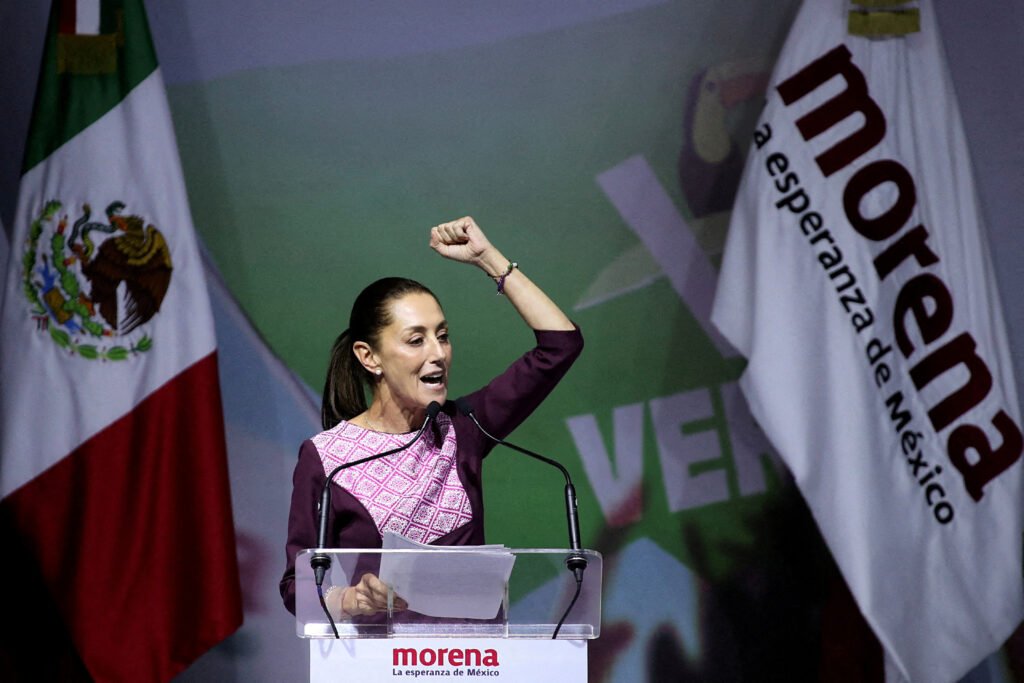On March 1, Mexico’s Morena party launched its official presidential campaign with a grand event in Mexico City’s Zócalo square, where a full-capacity crowd gathered to hear the party’s presidential candidate, Claudia Sheinbaum, unveil her vision for the next stage of Mexico’s transformation. Following an introduction by Clara Brugada, Morena’s candidate for Mexico City mayor, Sheinbaum presented a comprehensive, one-hundred-point plan aimed at constructing the “second floor of the transformation” initiated by President Andrés Manuel López Obrador (AMLO).
Many aspects of Sheinbaum’s platform aim to expand and solidify reforms already implemented under AMLO, such as constitutional amendments proposed by the president in February. But Sheinbaum’s approach brings new priorities, especially in areas related to women’s issues, building on the programs she developed as mayor of Mexico City.
Among the most notable proposals is a plan to lower the age for women to qualify for the universal pension, allowing partial benefits to begin at sixty. Sheinbaum’s platform also includes enhanced support for education, culture, and the arts, with extended social security coverage for artists. Additionally, her agenda emphasizes mental health, with a national program to support victims of violence. Recognizing Mexico’s urgent water issues, Sheinbaum plans to revise policies established during the NAFTA era that transferred water rights to corporations, promising that water management reform will be central to her administration. As a climate engineer, she envisions an energy transition that remains under public control, opposing the greenwashing often seen in multinational energy company models. This strategy aims to consolidate Mexico’s control over its resources, continuing one of AMLO’s signature battles.

A Party for the People
For those familiar with the detachment of mainstream party politics, the Morena movement’s vibrant energy may be difficult to imagine. Hours before Sheinbaum’s event, Mexico City’s central district began to transform into a celebratory gathering, as crowds filled the streets around the Zócalo. Some 350,000 people attended, arriving in waves throughout the day. The scene contrasted sharply with opposition rallies, reflecting Mexico’s diverse mestizo and Indigenous populations rather than an elite minority.
Supporters from all walks of life came to show their enthusiasm. Honorato, who traveled six hours from the Otomí Tepehua region, expressed hope that Sheinbaum’s leadership could address the historical neglect of his community. José Luis, a retiree, shared that he walked down from the La Raza neighborhood after public transit was disrupted by the crowds. Susana, another supporter, saw Sheinbaum’s candidacy as a chance to prevent corporate interests from exploiting the country, while Margarita, a mother, hoped Sheinbaum would be attuned to the issues women face, from caring for loved ones to coping with the trauma of disappeared family members. “There’s still a profound need for justice,” Margarita emphasized, reflecting a sentiment shared by many in the crowd.
Defying Global Trends
Morena’s rise in Mexico stands out amid the global trend of right-wing resurgence and a faltering left in many regions. In just over a decade, the party has gained control of the presidency, Congress, and a majority of state legislatures, and polls suggest Sheinbaum may even exceed Morena’s 2018 electoral success. This trajectory distinguishes Mexico from other countries in the Global North, where the left struggles to maintain momentum, and from other parts of Latin America, where leaders like Colombia’s Gustavo Petro and Chile’s Gabriel Boric face intense pressure from conservative forces.
Despite these challenges, the Morena movement has shown resilience against such narratives, developing a robust base and a strong popular following that many see as a model for the global left. This success has made Morena a unique example of progressive governance, one that continues to challenge the status quo and offer hope for a transformative approach to leadership.
Morena’s success, however, has not come without fierce opposition, and the months ahead are likely to see an intensifying campaign against Sheinbaum and Morena. International media narratives may try to paint Morena as authoritarian or corrupt, with warnings about Mexico’s “democracy in peril” or even unfounded claims about ties to organized crime. If Sheinbaum secures the presidency in June, calls for U.S. intervention could follow, based on exaggerated concerns about Mexico’s political trajectory.


